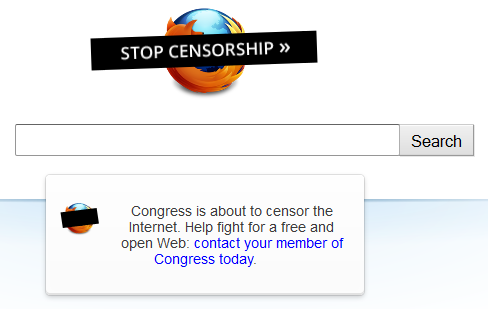The internet is abuzz over SOPA, or the Stop Online Piracy Act, a bill that is currently under consideration in the US House of Representatives (H.R. 3261). (The corresponding Senate bill is PIPA, which is short for the Protect IP Act, which itself is short for Preventing Real Online Threats to Economic Creativity and Theft of Intellectual Property Act of 2011).
Ugh. Sick of the acronyms yet? Only the military could come up with more contrived combinations of letters. And they have: ARGONAUT, or Applied Research reGarding Operationally Novel And Unique Technologies. (And that’s just one example…)
SOPA and PIPA are supposed to protect something of great value to companies and writers, too: intellectual property. These acts would do that by giving the Justice Department new powers to protect your intellectual property, including getting court orders that would bar online advertisers from doing business with websites that trade in illegally obtained copyrighted material, and even putting people in jail for distributing copyrighted material. That means if you write something and copyright it (you don’t even have to file the copyright—just say it’s copyrighted and it is) and post in on your website, and someone steals it and distributes it, the feds could be all over the case. The same goes for a company’s intellectual material.
This has been coming for quite some time, really. Back in the internet’s Wild West phase in the late 1990s, copyrights were largely ignored. Programs like Napster allowed people to share bad copies of songs if they were willing to wait up to an hour for them to download. You see, in those days, nearly everyone was connecting to the internet with a dial-up modem over a phone line. If the government had created an acronym for this technology, it would be SLOW, or TURTLE. Sure, a lot of pirating of copyrighted material took place, and that’s one of the reasons that Napster was shut down. But we hadn’t seen anything yet.
Fast forward to 2012. Broadband internet is everywhere, even in rural China, where US copyright law isn’t in the vocabulary. Thanks to broadband internet, file-sharing programs like BitTorrent, and hundreds of millions of people worldwide who like to share, one can download an entire two-and-a-half-hour movie in HD in literally just a few minutes. Compared to the Clinton era, the sharing of copyrighted material today is like comparing a Ferrari to a Model T Ford.
Critics of the proposed laws say they overreach and give the federal government the power to violate the first amendment and censor the internet. In fact, by the time you read this, Wikipedia and potentially dozens of other sites will have already staged day-long blackouts of their sites in protest.
What does this mean for your business? It means you need to educate yourself and make up your own mind. A good overview can be found on CNET. I won’t tell you how to think or what to decide. But this is big, and you owe it to yourself to learn the facts and then voice your opinion to your Congressmen and Senators.

